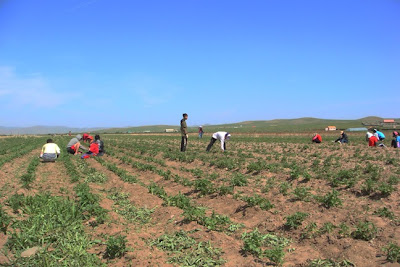I try to be myself when I teach. To me, being who you are as a person is just as important as what you teach. But increasingly it seems that, even in higher education, we are expected to be good actors. Like an entertainer, we are to fully engage our audience.
As a teacher, I understand that I need to teach well, but I also realize that, if willing ears are not there, there may be teaching, but no learning.
I know that, as a student or other member of an audience, there are talks and lectures I have thoroughly enjoyed but don’t remember their intended messages very well. A student may remember jokes and interesting stories that a teacher tells but, at the end of the day, what is important is that facts and knowledge required of a trade or profession be gained, not recollection of jokes.
 |
| totallypic.com/iStock/Thinkstock |
Who's grading whom?
As I grow older, I have witnessed the gradual invasion of our consumer-oriented culture into all facets of society. Students are now viewed as consumers of educational “services.” As service providers, we teachers must try our best to cater to the needs of these consumers, because they rate our teaching performance in the mandatory Student Feedback Questionnaire (SFQ) and because the SFQ rating is part and parcel of our appraisal as university employees.
What is a teacher? Who is the teacher? Does the teacher teach only what the learner wants to learn? If so, is the teacher a mere facilitator, there merely to guide active, inquisitive minds? I am all for that kind of teaching-learning relationship. I am aware of the modern philosophy of teaching-learning, whereby a child is guided in his or her exploration of the world. Rather than being directly taught, they are facilitated into self-directed learning. Such practice is delightful and enlightening. It takes away the pain of learning, and only the joy of exploration remains. And given sufficient time and resources, such practice is suitable for nurturing young minds.
But given current mass education, where professors teach large classes, funding is limited, and educators have to make do within the prescribed limits of an academic semester, this approach is not exactly feasible. Individuals learn at different speeds and in a variety of ways. If all of a society’s learning opportunities were offered in a facilitated, self-directed mode, it would be extremely costly. Is this necessary in tertiary education?
What they need to know
I regard myself a teacher, not a service provider. I teach what I think is important for students to know about caring for older people, not what they think they need. I do not consider myself a businesswoman who serves clients by giving them what they want. This won’t work, and it is not education. I know that because, a few years ago, when I was leading a team to design a master’s program for community nurses on the topic of community care for older people, I conducted a survey. The results showed that the respondents (potential students in the program) wanted a curriculum plan they could finish in the shortest time and at lowest cost.
To further illustrate my point, our faculty offers an applied ageing studies baccalaureate program. When students were told they needed to study anatomy and physiology of ageing, they questioned why, because they viewed such topics as irrelevant. Yes, I know. It’s hard to believe students enrolled in an ageing studies program would think that way.
What I am trying to say is that education should not be a business, although it can be run using a business model. This is especially important for university education. Universities are supposedly the minds of a society. They are supposed to lead a society in thinking and providing directions as to where we, as a community, should be heading.
When I was a student, recognition of teachers was based on the depth of knowledge they had in the subject matter in which they specialized. Nowadays, much more is expected of a teacher. Not only do we expect the teacher to be a master of his or her field, but also, like an entertainer, to perform well in class. Our PowerPoint presentations have to be interactive, colorful, and punctuated by jokes and stories. Better still, one should show videos—anything that engages the five senses. The teacher has to make classes joyous and take all pain out of learning hard facts, theories, and formulas. He or she needs to have high emotional intelligence, excellent interpersonal skills, and mastery of motivational techniques. Meeting all of these expectations requires, I think, that one be nearly superhuman.
When I am acting out a role or making a joke, it must be for the purpose of trying to get a message across. I can’t act out a role for the entire duration of the class. I know that being a serious person does not fit well with contemporary expectations of a popular teacher, but, to teach effectively, I need to be authentic.
For Reflections on Nursing Leadership (RNL), published by the Honor Society of Nursing, Sigma Theta Tau International. Comments are moderated. Those that promote products or services will not be posted.



























